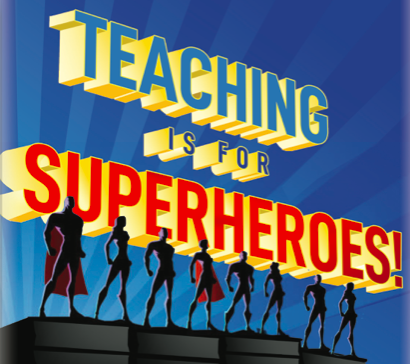You’ve probably heard about a little film coming out this month:

Don’t worry, NO SPOILERS here!
In fact, the Avengers: Endgame directors Anthony and Joe Russo have earnestly requested that audiences and critics NOT reveal any details about the movie:
“Because so many of you have invested your time, your hearts, and your souls into these stories, we’re once again asking for your help. When you see Endgame in the coming weeks, please don’t spoil it for others, the same way you wouldn’t want it spoiled for you.”
I’m so wary of spoilers this time around, I refuse to read any preview articles, interviews, or speculation by fans. Likewise, whenever a trailer pops up online or on television, I quickly avert my eyes. I’m suspending my social media use later this week, too, since I don’t trust my friends or myself. No spoilers!
I already know I want to see Avengers: Endgame. I don’t need any pre-release hoopla to motivate me.
-

Read more about “Keeping Students Motivated.”
We’ve talked about how teachers should avoid spoilers in their classrooms. We must be careful to not sabotage, short-circuit, or short-change our students in the learning process. Authentic understanding arrives through wonder and discovery, making sense as one investigates concepts and applications.
Read more about spoiler alerts here, along with a nostalgic look at the highly anticipated Star Wars: Episode VII – The Force Awakens. (The rumors are already flying about the upcoming Episode IX, and I imagine things will soon hit hyperspace.)

Capture my attention? Done.
That said, excited fan-geeks are NOT the same as your typical student. While teachers should still avoid spoilers, they may need to provide a little more motivation in their classrooms. And they also need to help along the way.
Another applicable entertainment analogy is the “TEASER.”
Merriam-Webster defines “teaser” as “an advertising or promotional device intended to arouse interest or curiosity especially in something to follow.”
Often, a teaser doesn’t directly name the product or event. Teachers can apply the same practice to engage students, but not spoil them with every detail or label.
Teasers can appear many months before the actual event, and here this analogy may not perfectly translate to the classroom.
Rather than waiting several days or weeks, a teacher probably needs the learning pay-off to occur much sooner. This “a-ha moment” could be in the same day, such as fulfilling an introductory question from bellwork. Or teachers could “tease” students with a prompt or “what if?” at the end of one day and return to this topic the next class.

Check out “4 R’s that increase student motivation”
Like spoilers, we’ve discussed teasers before on this blog. Take a look at some superhero examples and classroom applications here.
In the meantime, decide how spoiled you want to be before the next pop culture event. Maybe a new teaser has appeared and piqued your interest.
Either way, find ways to tease – not spoil – your students in the pursuit of learning!

Directors of Avengers: Endgame gave an official date for ending the spoiler ban. https://www.cnet.com/news/avengers-endgame-spoiler-ban-lifts-monday-russo-brothers-say/
Should teachers use such a schedule in the classroom?
LikeLike